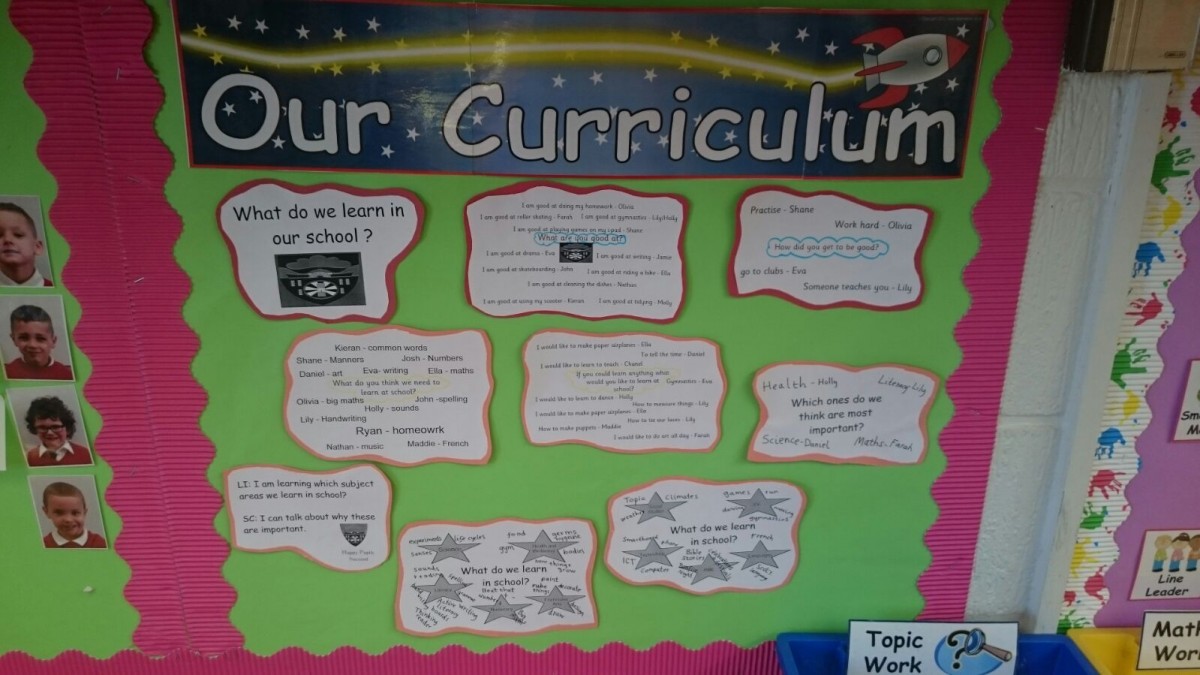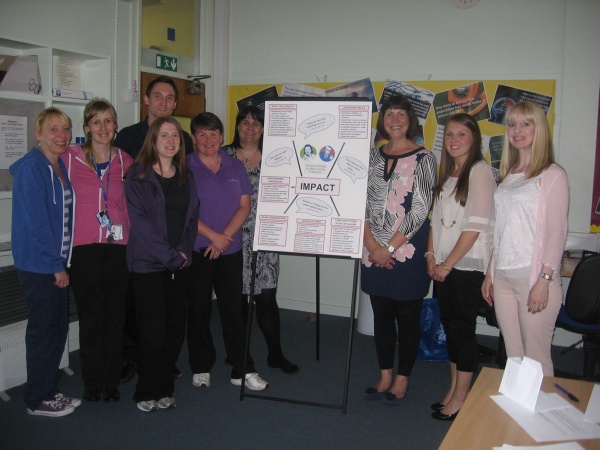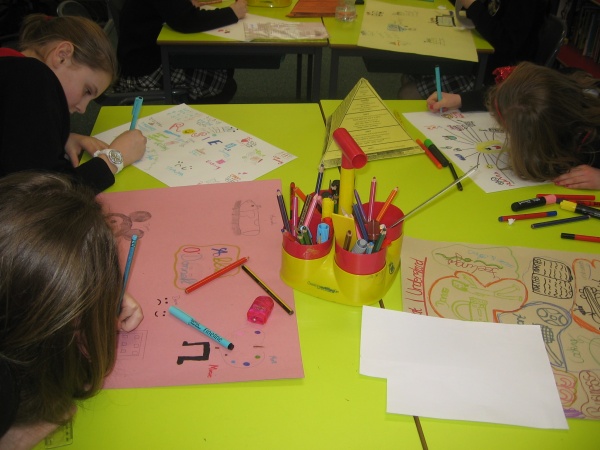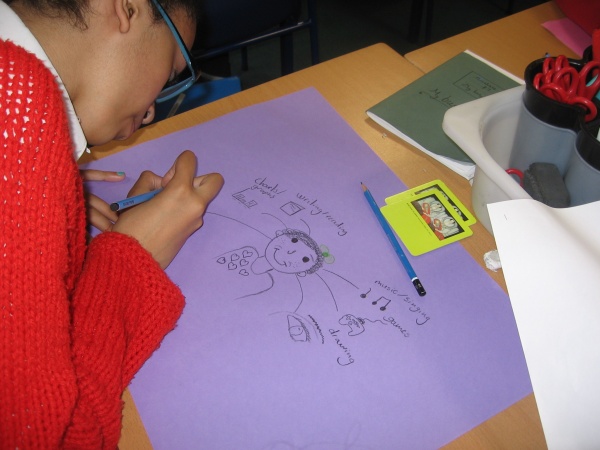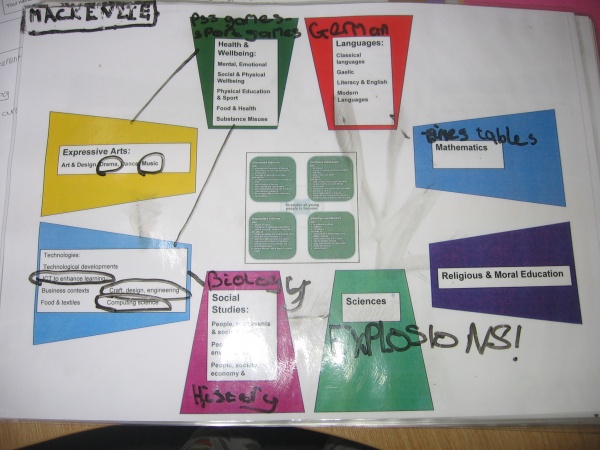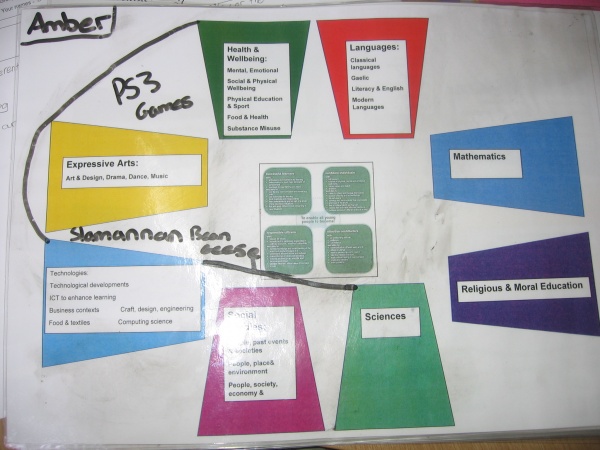 On 19th April, Yvonne McBlain popped back to gather staff feedback on their curriculum development so far at Hallglen Primary School. 10 staff members were kind enough to give their time and views during this informal evaluation activity. You can read more about Hallglen’s curriculum development process here.
On 19th April, Yvonne McBlain popped back to gather staff feedback on their curriculum development so far at Hallglen Primary School. 10 staff members were kind enough to give their time and views during this informal evaluation activity. You can read more about Hallglen’s curriculum development process here.
Staff described the following impact:
- Increased knowledge of the curriculum – specifically their ability to interpret the skills, knowledge and understanding built into the experiences and outcomes. This has helped them to build their curriculum more effectively, and enabled better planning.
- Although they didn’t realise it at the time, they were moderating their teaching and learning in various ways – through collegiate discussion, learning walks, and then joint planning with stage and level partners. This has helped integrate moderation and collegiality naturally, and contributed to a positive ethos and culture of sharing good practice and ongoing self-evaluation.
- Have a powerful understanding of progression – know which E & Os needed to be consistently progressed, and which ones could be done less often.
- Topics in school have changed radically and are much more relevant and responsive to pupil needs. Everyone in school has an overview of which contexts are being used – not just for their own stage or level. This has enabled more powerful and effective transition between stages, and teachers feel confident and clear about what they have to teach and why.There is greater consistency across the school – they have a shared language, u nderstanding and vision for their curriculum
- Learning walks, peer moderation and observation visits are all more purposeful and help staff evaluate their progress together.
- Next steps in curriculum development are therefore clearer to all, but staff are looking forward to their formal, whole school collegiate evaluation of the changes made this session.
- There is the facility to offer pupils flexible and responsive progression pathways across the curriculum
One of the new developments staff have worked on this session, is pupil understanding of the curriculum. This was felt to be a valuable way to increase attainment and pupil participation, and teachers developed specific learning experiences for their classes. Staff can see ways in which these lessons can be made more meaningful and appropriate to age and stage, and further development of these lessons will be done, but already the following impact has been observed:
- Children can have a genuine input into planning their learning.
- They now quite naturally reflect upon and evaluate their learning in action during a project as well as at the end.
- Pupils have the vocabulary and language to comment effectively on their learning.
- The curriculum lessons have “made the penny drop” for a number of pupils – they can better understand the purpose and structure of the learning they need.
- Pupils have a better appreciation of what learning is and what they need to do to help themselves learn.
- They are now getting to know their curriculum and can see and comment on links across the curriculum. (Staff are therefore tackling the very challenging job of developing pupil understanding of interdisciplinary learning.)
- Pupils have the confidence to make respectful suggestions about how the teaching they receive could better meet their needs.
- They are better motivated and engaged by their learning.
- They think more deeply about their learning and can talk about it fluently.
The need for a pupil curriculum understanding lesson was discussed at the last inset day and staff agreed to teach their lessons at the same time in the session. A general lesson was provided which each staff member adapted for their class if they wanted to. Stacey Walker, Kara-Anne Kelly and Louise McGlynn all talked enthusiastically about what they did, why they did it, and what the outcomes were. Stacey, Kara-Ann and Laura Hurren then gathered the photos of work and displays shared in this post. Click here to listen to their description of this work. Yvonne would like to thank everyone involved for their time, especially Stacey, Kara-Anne and Laura for taking the time to record these files.

